Does Glycerin Clog Pores? Get to the bottom of this popular skincare ingredient’s effects on your skin and make informed choices!
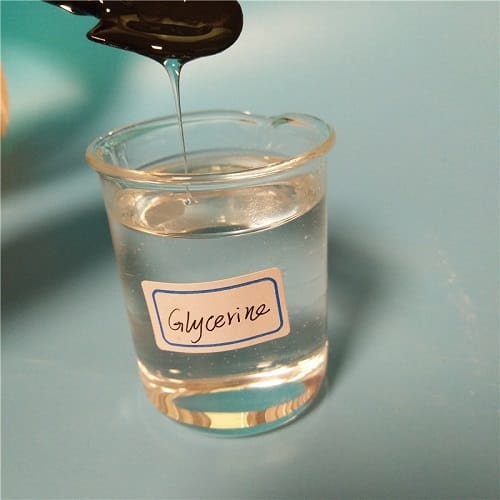
Glycerin also spelled glycerine or glycerol, is a natural fluid obtained from vegetable oils or animal lipids. It’s used in soaps, shampoos, conditioners, lotions, moisturizers, deodorants, shaving creams, and toothpaste. According to a 2014 Cosmetic Ingredient Review – Glycerol was the third most frequently reported ingredient in cosmetics, other than water and fragrance. But Does Glycerin Clog Pores? Let’s find out!
Here are some of the best glycerin uses
Does Glycerin Clog Pores?
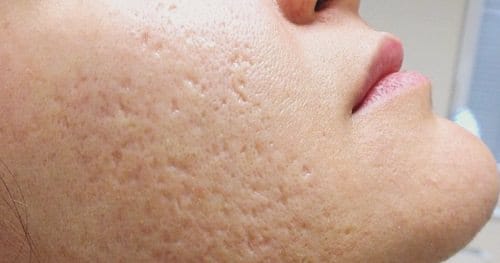
Glycerol doesn’t block the skin pores because it’s a non-comedogenic product. However, avoid the usage of pure glycerine, as it can cause the skin to blister and may close your skin pores in rare cases. That’s why dilute it with water before using it on the face and skin. Furthermore, glycerol is suitable for all skin types, either sensitive, acne-prone, or dry skin.
Is Glycerin Good for Oily Skin?
Glycerin, a natural humectant, is beneficial for oily skin when used in the right way. It attracts and retains moisture in the skin, keeping it hydrated and balanced. For those with oily skin, proper hydration is essential to prevent the overproduction of sebum, which can lead to clogged pores. However, use glycerin in moderation and always dilute with rosewater to prevent irritation.
Does Glycerin Cause Acne?
Glycerin itself does not typically cause acne. In fact, glycerin can be beneficial for acne-prone skin due to its hydrating properties, which can prevent the overproduction of sebum. Excess sebum combined with dead skin cells causes acne and breakouts.
Glycerin Benefits for Skin
Below are some unique benefits of glycerin that will lure you into incorporating it into your daily regime.
1. Has Anti-irritant and Anti-Inflammatory Properties
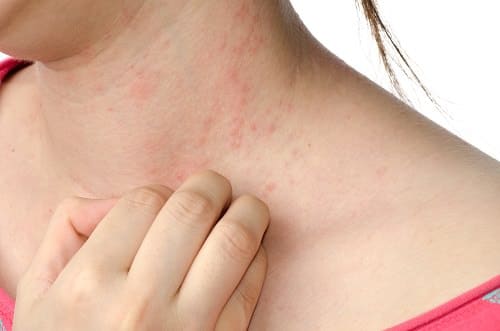
Glycerin has anti-irritant and anti-inflammatory properties. According to a study, glycerine relieves the inflammation of skin irritation and restores the function of the stratum corneum as well.
2. Promotes Cell Maturation
Glycerol helps the younger cells to become mature by promoting cell maturation. It’s a never-ending process in which younger cells become mature and replace the old skin cells. If this process is hindered, then the skin becomes dry and dull.
3. Improves Skin Elasticity

Exposure to sun rays, premature aging, and smoking are some factors that hamper the stretchability of the skin. According to a well-reputed study, the topical application of glycerin improves skin elasticity and keeps it youthful.
4. Has an Antimicrobial Effect
Glycerol shows antimicrobial activity toward Pseudomonas aeruginosa,
E. coli, Salmonella typhimurium, and S. aureus. Furthermore, it stimulates the average wound healing time, acts as a skin barrier, and hydrates the outer layer of the skin.
5. Natural Humectant

Glycerin is a humectant, a moisturizing product that hydrates dry skin by drawing moisture from the air and holding it there. Add the below recipe to your daily skincare regime to maintain your skin’s hydration level.
6. Soothes Chapped Lips
Glycerin is an excellent product for chapped lips due to its natural humectant properties. As a humectant, glycerin attracts and locks-in moisture. By providing hydration, glycerin can alleviate the discomfort associated with chapped lips and promote healing.
7. Aids with Wound Healing
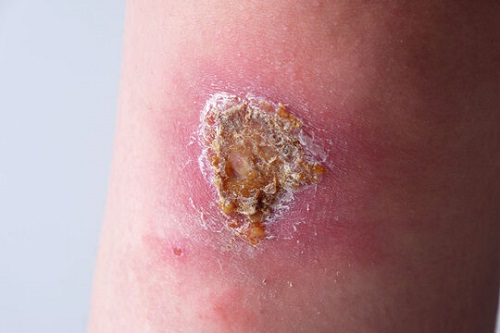
Glycerin is commonly used for wound healing due to its hydrating and skin-protecting properties. When applied topically to a wound, glycerin helps to maintain a moist environment that speeds up the healing process. Always consult a physician before using glycerin on the wounds.
8. Has an Anti-aging Effect
Glycerin has anti-aging benefits due to its ability to hydrate and plump the skin, reducing the appearance of fine lines and wrinkles.
9. Helps with Acne

As glycerin is packed with anti-microbial properties, it’s the best product to lessen the appearance of mild acne. If you have a severe one, consult a dermatologist.
10. Whitens Skin
Along with glycerin’s hydrating properties, it whitens the skin as well. However, there is a lack of scientific evidence to support this claim. It works because of its exfoliating properties. When applied topically, glycerin’s humectant nature enhances the moisture content of the skin’s outermost layer, resulting in a softer surface that is more easily exfoliated.
11. Reduces Scar
According to this reputed study, glycerine has been found to be effective in reducing the appearance of scars. If you want to lessen the appearance of the wound marks, use the below homemade glycerin moisturizer recipe.
Side Effects of Glycerine on Face
Glycerin is generally considered safe for topical use and has few reported side effects, which are:
- Rash, Itching, or Redness
- Allergic Reaction and Blistering (in rare cases)
Homemade Glycerin Moisturizer
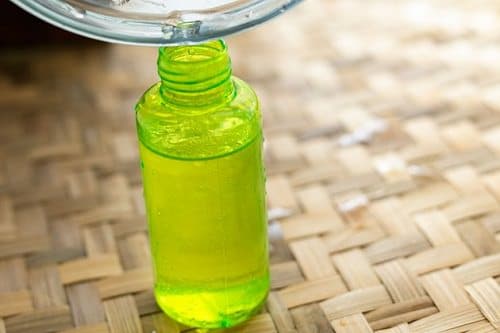
Make this homemade glycerin moisturizer to get soft, supple, and well-hydrated skin. The best part, it won’t clog your pores.
Supplies
- One Cup of Vegetable Glycerin
- Two Tablespoons of Fresh Lime Juice
- Cotton Ball
- Glass Jar
- Mixing Bowl
- A Spoon
Directions
- Pour one cup of glycerin with two tbsp of fresh lime juice into a bowl and mix them well.
- Now, empty the liquid into an airtight glass jar.
- Your homemade glycerin moisturizer is ready to use on the face and lips.
- Store your moisturizer in a cool, dry place, away from direct sunlight and heat.
How to Use Glycerin on Face?
As glycerin doesn’t clog pores, it’s a great addition to your skincare routine. Here’s how to use this hydrating moisturizer on your face:
- Start by washing your face with a gentle cleanser and pat it dry with a towel.
- Take a small amount of your homemade glycerin moisturizer and apply it to your face in gentle circular motions. Be sure to cover your entire face, including the neck and any other areas that need hydration.
- Allow the moisturizer to absorb into your skin for 5-10 minutes.
- After that, wash your face with tepid water.
How to Use Glycerin on Lips?
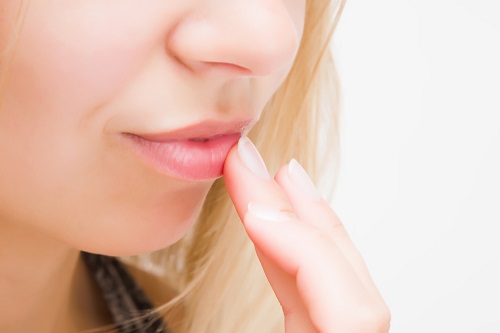
Keep your lips soft and hydrated by using the glycerin moisturizer in the following way:
- Start by washing your hands with soap and water to ensure they are clean.
- Using a clean spoon or spatula, scoop a small amount of the glycerin moisturizer out of the container.
- Gently apply the glycerin moisturizer to your lips, spreading it evenly over the entire surface. You can use your finger or a clean, soft-bristled brush for this purpose.
- Wait for a few minutes and wipe off any excess with a clean tissue.
- For best results, use the glycerin moisturizer on your lips several times throughout the day, especially in dry or cold weather conditions.
Does Glycerin Clog Pores: Conclusion
Glycerin won’t clog your pores, especially when diluted. Furthermore, it’s beneficial and safe for all skin types. Add this natural fluid to your daily regime to get numerous health benefits.
Does Glycerin Clog Pores: Frequently Asked Questions (FAQs)
1. Can I Use Glycerin on my Face Everday?
Glycerin can be used on the face every day in moderation because it will not clog pores. It’s a natural moisturizer that attracts and seals moisture to the skin, keeping it hydrated and healthy. However, using glycerin excessively can make your skin feel sticky and greasy.
2. Does Glycerin Make Skin Dark?
No, glycerin does not make the skin dark. It’s a colorless and odorless liquid that is commonly used in skincare products as a moisturizer. There is no scientific evidence to suggest that glycerin can cause skin darkening.
Does Beeswax Clog Pores? Find out here
